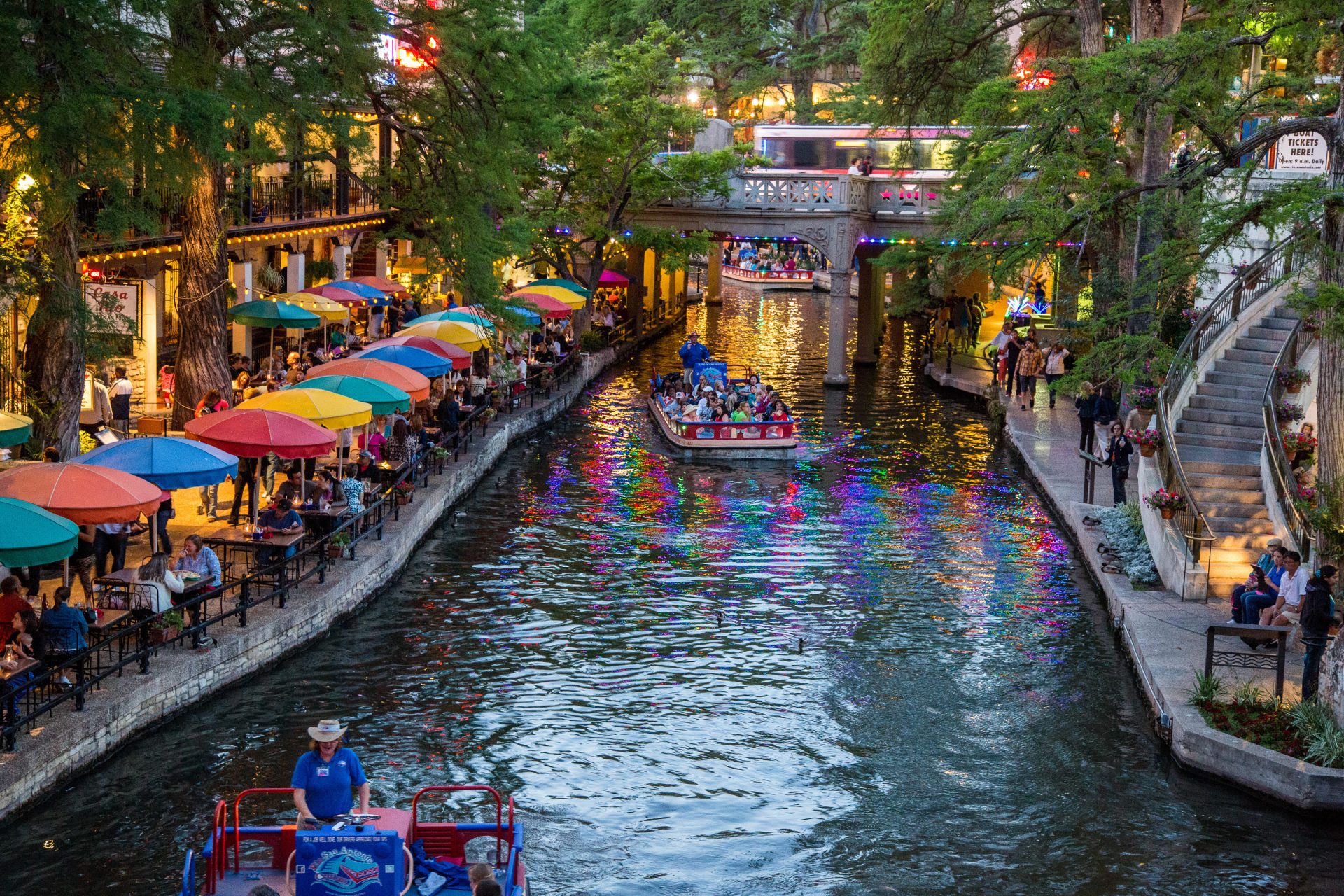
A busy evening on the San Antonio River Walk in May 2015. Photo by Will van Overbeek.
For most Texans, the coronavirus has pushed travel plans off the table, unless you count the occasional foray to the grocery store or pharmacy.
But for the 1.2 million Texans who work in the travel industry, the pandemic means more than a cancelled vacation. It means closures, furloughs, and lost income. It also means millions in lost tax revenue for all of us.
That’s why the Texas Travel Alliance—an industry group with members including zoos, aquariums, water parks, amusement parks, resorts, and other attractions—has launched the Life’s Better in a State of Travel Economic Recovery Campaign to get you thinking about where you’ll go when stay-at-home restrictions ease.

Dan Decker, president and CEO of the Texas Travel Alliance.
“We’re the second largest export industry in Texas behind oil and gas, and we’re anxious to get to work helping the economy again,” says Dan Decker, president and CEO of the nonprofit industry group. We spoke with Decker about the future of travel in Texas.
What financial impact has the pandemic had on the Texas travel and tourism industry?
Decker: Over past six weeks, the industry has lost $7.3 billion in direct travel spending. That includes airfare for companies based in Texas, and revenue from hotels, attractions, and more than 60,000 small businesses.
The alliance this week sent a letter to Gov. Abbott, outlining a phased reopening of attractions starting Saturday, May 16. Is it safe?
Decker: The people who run these attractions, whether they’re big or small, are experts in what they do and crowd management at their destinations. It’s really no different than a grocery store or restaurant, and they’re all are very focused on their brand and making sure they’re not causing issues or concerns.
What steps will businesses take to stay safe?
Decker: A number of attractions have put together a six-stage plan to show Texas they can do this and do it well. It starts with opening at 25 percent capacity, covers guest and employee screening, personal protective equipment, social distancing measures, cleaning and sanitation, work and sick policies, and COVID-19 training.
How do you think the travel industry will bounce back?
Decker: You’re going to see short leisure trips done by car first—three- and four-night stays within a 300-mile radius of home, where people can take their families and feel safe. Over the next year, people will start to venture out and take an airplane for a longer vacation. I don’t think you’ll see a lot of large groups, family reunions, or large weddings. I think business travel will slowly return, but people will be apprehensive. Certainly, large conventions will take time to come back.
What are your members’ biggest concerns?
Decker: So many travel and tourism jobs are dependent on three months of summer. They require a great summer to survive the rest of the year. The big question is “Can we get open quick enough to have a big summer, and will summer be long enough given the education system?” Smaller indoor attractions have concerns because they can only handle so many people.
How will staying in a hotel be different now?
Decker: You’ll see less people in the lobby. It may feel sparser because people are not congregating in areas they normally would, like lobby bars and restaurants. You may see a longer wait time to clean a room because procedures will be more stringent.
Will any amenities go away?
Decker: Anything that’s a touchpoint in the room [could go away]—a water glass, ice buckets, or coffee makers. You may see TV remotes in sealed containers.
How else will travel change for Texans?
Decker: More drive-to trips in Texas. … You’ll see a lot of travelers from shoulder states, but national and international travel will take some time to regain.
What else is the Texas Travel Alliance doing to help its members?
Decker: We’re working with the governor’s office to get attractions reopened. We’ve put on 16 webinars for our members over the last eight weeks about how to properly use social media, financial planning, human resources, and marketing.
How is Texas positioned compared to other states?
Decker: It seems our state is better off than other locations [in weathering the pandemic], and I think that will help us rebound faster. Being at home has people anxious to get out and experience something new and different. What we’re saying is, “While you’re staying in now, go ahead and dream big about what to do when it’s time to travel again.”








